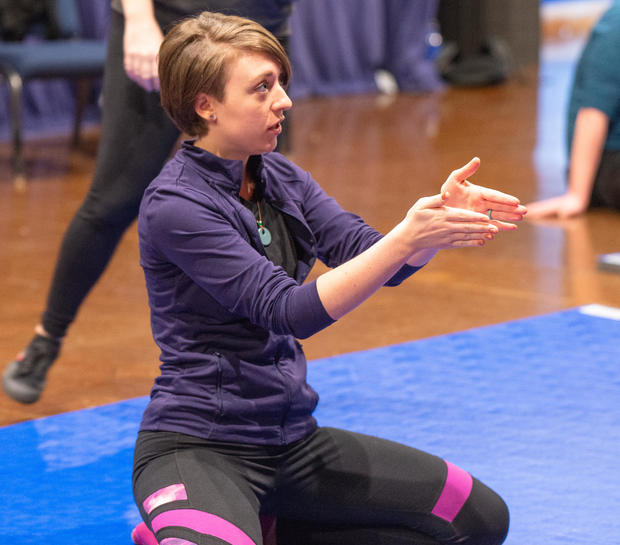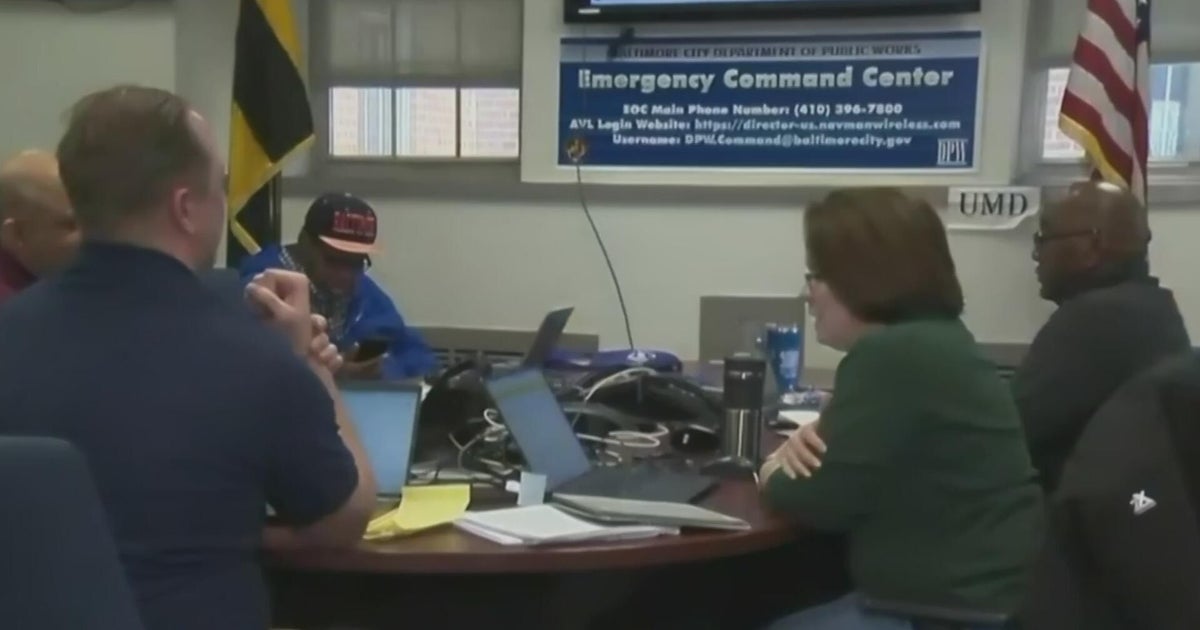"We're not the sex police": Here's what intimacy coordinators actually do on film and TV sets
More than 70% of Americans say a rewarding career or job is extremely important for them to live a fulfilling life — more important than family, friends or wealth. CBS News interviewed a broad array of workers who chose unique jobs, for a series we call: Unique jobs, extraordinary lives.
Have you ever heard of an intimacy coordinator? Most people don't know they are the professionals who help bring intimate scenes to life on screens.
"We are there to help coordinate any scene with simulated sex acts, nudity, or vulnerable scenes," explained Amy Northrup, a New York City-based intimacy coordinator for film and television.
Intimacy coordination is a relatively new and growing field. The first production to hire and credit a designated intimacy coordinator was HBO's "The Deuce," starring James Franco and Maggie Gyllenhaal, which premiered in 2017 and depicted the porn industry in 1970s New York City.
There are more than 100 certified intimacy coordinators working on film and television sets today. Their pay is roughly in line with that of stunt coordinators, whose minimum rates the union sets are about $1,500 a day. They make, on average, between $60,000 to $90,000 per year.
In its latest union contract, the Screen Actors Guild-American Federation of Television and Radio Artists (SAG-AFTRA) stated that productions must make a good-faith effort to hire intimacy coordinators when necessary. According to the Motion Picture Association, the film and television industry employs 2.74 million people and pays more than $242 billion in wages annually to everyone from stunt performers to hair and makeup artists across domestic productions.
Northup told CBS News she gets frequent questions about the career path she took to instruct a pair of actors to "make love" based on a script that offers few other descriptive details. She said intimacy coordinators need to bring a variety of skills to set in order to make actors feel comfortable performing such scenes.
"We're not the sex police"
The perception of what intimacy coordinators do on set has evolved too — producers and directors have come to lean on them for guidance to realistically depict "vulnerable" moments on screen. "Vulnerable" scenes can also include an actor depicting someone giving birth or someone in a wheelchair being bathed. A scene with breastfeeding or that shows a gynecological appointment would qualify too.
"Anything asking people to put their bodies in a hyper-exposed, vulnerable state is where intimacy coordinators can be effective team members," Northrup told CBS News.
Actor Zendaya recently spoke publicly about how working with an intimacy coordinator on scenes filmed for director Luca Guadagnino's "Challengers," whose story follows a love triangle, made her feel safe and comfortable while filming intimate scenes with her co-stars.
"It's really expanded in last five years and people recognize that intimacy coordinators are creative resources who come with dramaturgy expertise around sex and sexuality," Northup said. "We are not the human resources department, we're not the sex police."
Much of the work Northup and her colleagues do takes place before the cameras start rolling. That can include talking to directors about how they envision scenes unfolding, and what precise positions they want actors' bodies in — details that aren't always included in scripts.
"Scenes are usually written as 'They go at it,' or 'They make love,'" Northup said. "For one director it could mean they kiss, fall into bed and the camera directs away. For another it would be we stay on them, one person climbs on top, and there's a moment that could be really detailed. So the first thing we ask the director is, 'What are you picturing? What are shot setups, what is the body positioning, the degree of nudity, what actual sex acts do they engage in?'"
Other times intimacy coordinators must consider actions to keep actors safe such as making sure an actor's scene partner doesn't eat peanuts because someone has a peanut allergy and kissing them would be dangerous.
Navigate the "messiness" of human interaction
There's no traditional career path to become an intimacy coordinator. The job requires a unique blend of skills that intimacy pros working today might have picked up working as actors or in other film industry roles.
It also demands soft skills that are harder to teach, like a certain demeanor and a gentle touch.
"We are here to help navigate the messiness of human interaction. Demeanor-wise, it's important to bring levity to the role, a light touch, and to be expert at de-escalating and intervening in a way that no one knows it happened," Northup said.
While professionals don't need certification to work, several training programs meet SAG-AFTRA's standards. The union maintains a list of about 70 registered intimacy coordinators. Jessica Steinrock is the founder and CEO of SAG-AFTRA accredited Intimacy Directors and Coordinators, which she says has certified about 100 professionals.
Among other topics, certification programs teach consent training, movement coaching techniques, modesty garment and barrier application, and bystander intervention protocols.
While certification is one way to demonstrate qualification, Steinrock noted that many capable intimacy practitioners aren't officially certified. On-set experience is always helpful, too, and some intimacy pros balance coordination with work as actors, assistant directors or the costume team.
Lucy Shapiro, a seasoned costume designer who has worked on TV series including "Life and Beth and "Only Murders in the Building," said there's a crossover between what her department does and intimacy coordination. She even founded a company, Covvier, that makes modesty garments with protective barriers for actors to wear while filming nude or intimate scenes.
Previously, she and other costumers made use of shoe insoles, yoga mats and deflated pilates balls to create barriers between actors filming intimate scenes.
"It wasn't until intimacy coordinators came around and said there should be a standard garment that we started our company," she told CBS MoneyWatch. "Working side by side with intimacy coordinators has been such an industry change and has made it so much better to everyone all around."





